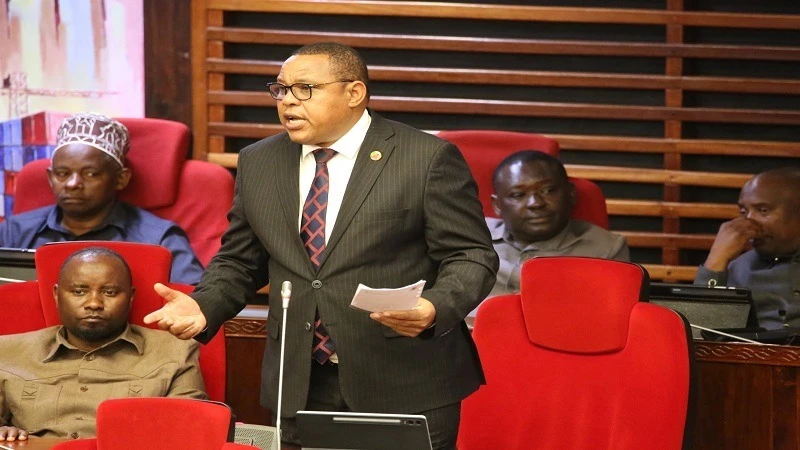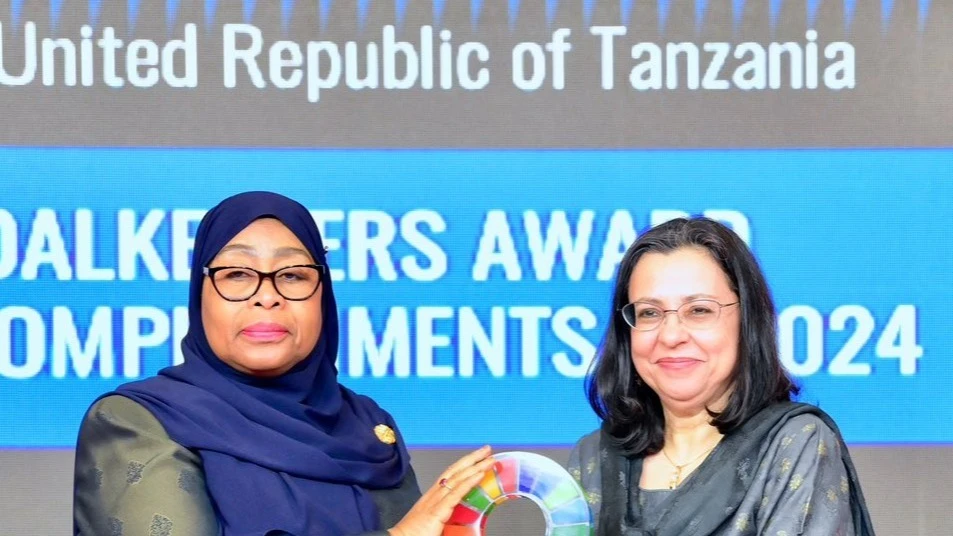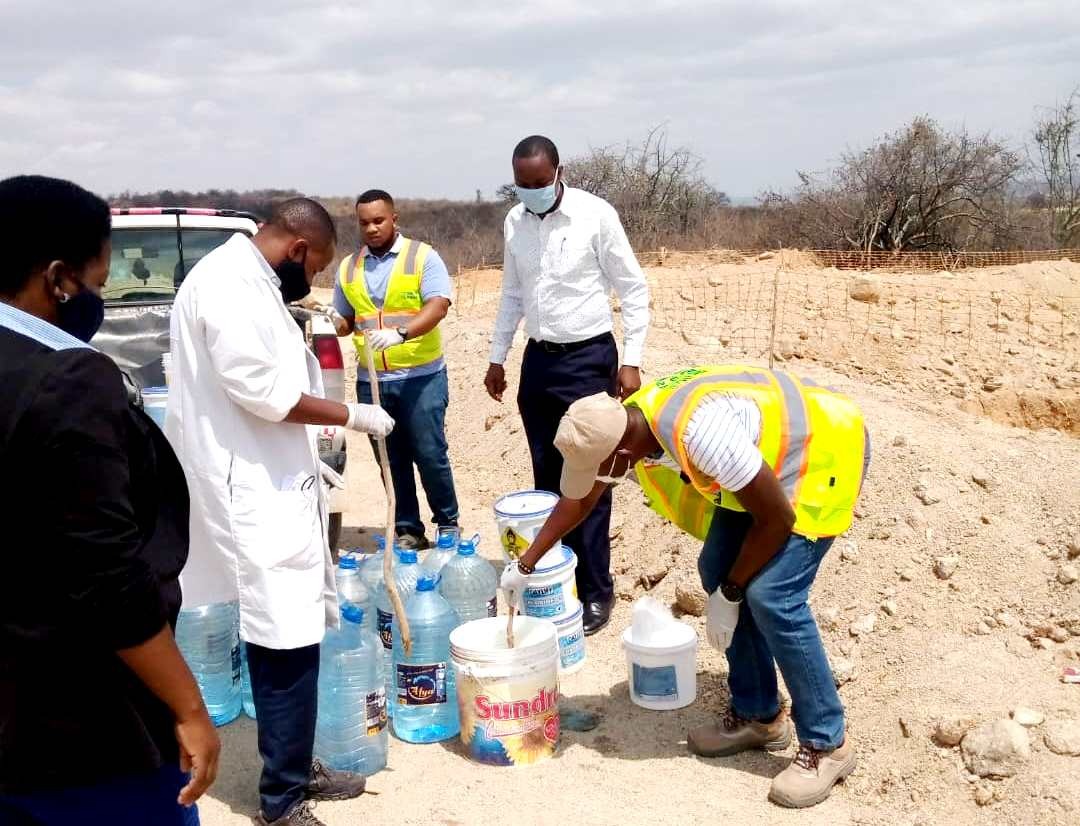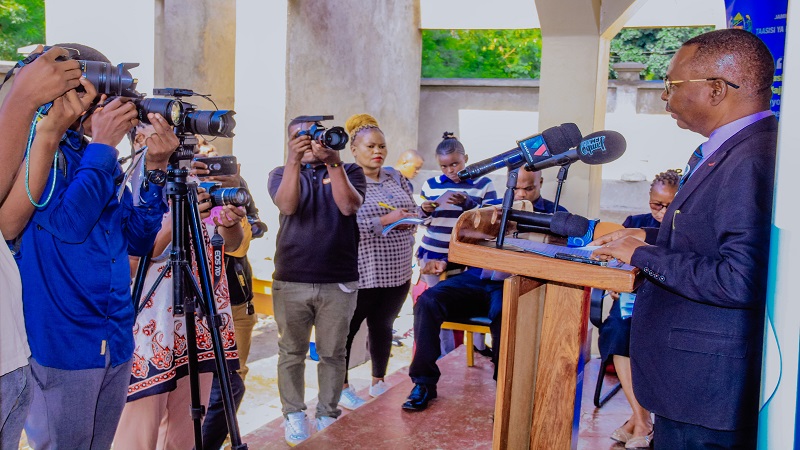New study seeks to co-produce solutions for climate resilience

ARDHI University (ARU) and the Centre for Community Initiatives (CCI) have jointly launched a special project aimed to explore and advance nature-based solutions (NbS) in urban areas.
Dubbed: ‘Listen, Learn & Leap: Co-Producing Equitable and Sustainable Nature-Based Solutions (NbS) for Climate Resilience in East African Cities,’, the three-year collaborative project brings together a diverse group of partners including the University College London (UK), Kounkuey Design Initiative (KDI) in Kenya, ARU, CCI and ICLEI Africa.
The project, funded by UK Research and Innovation Fund, aims to build practical evidence for the uptake, efficiency, adaptability and scalability of NbS for water management in urban informal settlements in East Africa.
Speaking during the official launch of the project in Dar es Salaam recently Prof Wilbard Kombe from ARU and Principal Investigator of the project said the initiative aims to explore the socio-political factors that support the uptake, sustainability and institutionalisation of NbS, with a particular focus on amplifying the voices and perspectives of young people, especially young women and girls living in informal settlements.
“Through the initiative, we will work to ensure that the marginalised groups play a central role in the design and management of localised NbS solutions in communities,” he said.
Prof Kombe said the aim is to engage local communities in creating solutions that not only address immediate environmental challenges but also contribute to long-term social and economic well-being.
He noted that nature-based solutions are actions that protect, sustainably manage, or restore natural ecosystems to address societal challenges such as climate change, food and water security, human health and disaster risk reduction.
For example, mangrove tree planting in coastal areas can mitigate flooding from storm surges and coastal erosion while providing critical habitat for biodiversity, including fish, birds and plants.
Prof Kombe said the collaborative effort is set to generate valuable insights into how nature-based solutions can be scaled and institutionalized to build climate resilience in East African cities, while also promoting social equity and environmental sustainability.
“We aim to leverage learning from residents and local governments to ensure practice and policy impact, as well as academic contribution. Incorporating urban nature, green infrastructure, and Nature-based Solutions to flooding issues prevalent in the planning process of informal settlements, the project emphasizes resident-driven gender-equitable informal settlement improvements,” he said.
Dr Tim Ndezi, CCI executive director said the participatory research approach aims to engage local communities in identifying and implementing nature-based solutions that can address climate change and environmental degradation while fostering sustainable livelihoods.
“The study will explore various NbS initiatives, including tree planting, waste management and erosion control measures,” he said.
Dr Ndezi said in Dar es Salaam, a group of youth in the Karakata Street in Ilala District has launched a bamboo planting project along the Msimbazi River to combat erosion.
The effort, aimed at protecting the riverbanks, is part of a broader movement to use bamboo as a sustainable, eco-friendly solution to environmental challenges.
In other parts of the city, such as Chamazi and Kiburugwa in Temeke District, Dar es Salaam, local communities are actively engaging in urban farming initiatives to improve food security and contribute to climate resilience.
The projects also involve mangrove planting, a key NbS that helps protect coastal areas from flooding and provides habitat for biodiversity.
Abdallah Lungo, Senior Environmental Officer in the Vice President’s Office (Union and Environment) urged the private sector to play a significant role in financing climate resilience, adaptation and mitigation projects especially those targeting at attracting sustainable nature-based solutions.
According to him, the private sector is a key partner in financing sustainable nature-based solutions for climate change in Tanzania and the East African region at large.
He said climate change is real and investments are playing a critical role in accelerating positive impact for humans and nature, the stakeholders for the new nature-based study which will further help improve climate resilience.
“Sustainable nature-based solutions are a way of mitigating climate crises as far as every development partner is concerned. It is important we continue to sensitize communities, especially those living near rivers or watersheds, on applying nature-based solutions to address climate change threats,” he said.
Kissa Kasekwa, the coordinator of the Tanzania Federation for Urban Poor (TFUP) in Mnyanyani and Vingunguti wards in Ilala District, Dar es Salaam shared that as part of the project, their groups had commenced bamboo planting two months ago with the aim of stabilising the banks of nearby rivers and improving the local environment.
“We are excited about the progress we have made, and we are committed to expanding these efforts to build a more resilient community,” Kasekwa said.
Nature-based solutions are actions that protect, sustainably manage, or restore natural ecosystems in order to effectively and adaptively address societal challenges such as climate change, human health, food and water security, and disaster risk reduction while also providing human well-being and biodiversity benefits.
Flooding in coastal areas, for example, is a common problem caused by storm surges and coastal erosion. This problem, which has traditionally been addressed with manmade (grey) infrastructure such as seawalls or dikes, can also be addressed by actions that take advantage of ecosystem services such as tree planting. Planting mangrove trees, which thrive in coastal areas, reduce the impact of storms on human lives and economic assets while also providing habitat for fish, birds, and other plants supporting biodiversity.
Top Headlines
© 2025 IPPMEDIA.COM. ALL RIGHTS RESERVED

























